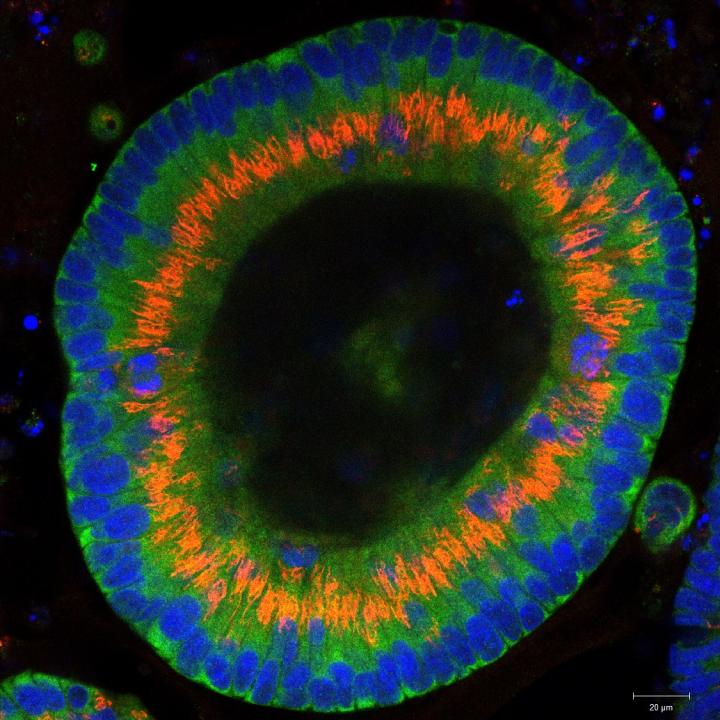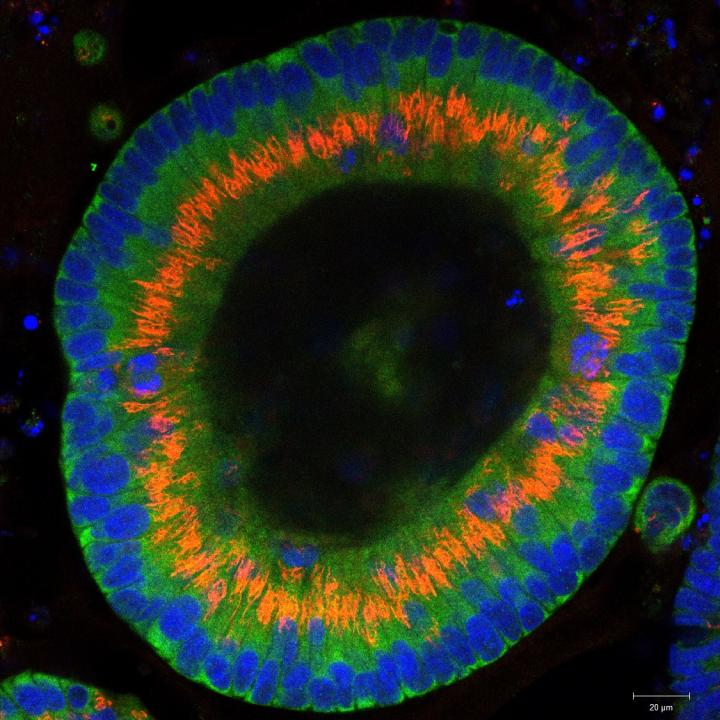
Credit: Dr. Joseph Regan / Charité – Universitätsmedizin Berlin
Colon cancer is the third most common cancer and fourth most common cause of death worldwide. Colon tumors consist of different types of cells, which play different roles in the growth of the tumor. The development and spread of cancer is thought to be caused by a subpopulation of cells that possess stem cell characteristics, including the capacity for self-renewal, differentiation and therapy resistance. These 'cancer stem cells' are also thought to be the source cancer recurrence following initial treatment success.
As part of OncoTrack project (an international consortium of scientists funded as part of the European Innovative Medicines Initiative), Dr. Joseph Regan and his colleagues at the Charité Comprehensive Cancer Center (CCCC) – working with scientists from the Max Planck Institute for Molecular Genetics, the Medical University of Graz and Bayer AG -investigated a treatment option aimed at treating cancers via the targeted elimination of cancer stem cells. Potentially capable of significantly improving treatment outcomes, this approach requires an in-depth understanding of both the relevant cellular communication pathways within the stem cells, and of the genes regulating them.
As part of the current study, the researchers carried out genetic sequencing of the colon cancer stem cells and performed functional studies using both mouse models and 3D cell cultures from patient-derived cancer cells. Their research revealed that cancer stem cell survival is controlled by a specific feature of the Hedgehog signaling pathway (SHH-PTCH1), which allows cells to respond to external signals in addition to inhibiting stem cell differentiation.
"The targeted inhibition of the Hedgehog signaling pathway, used in combination with other standard treatments to shrink tumors, may provide a new strategy for the elimination of cancer stem cells and the prevention of cancer recurrence," explains Dr. Regan. Similar targeting of the Hedgehog signaling pathway has also produced promising results in other preclinical studies on pancreatic and breast cancer cells. He adds: "Future research will set out to better define the downstream signaling components of the pathway and further investigate how Hedgehog signaling controls cancer stem cell survival."
###
*Regan et al.: Non-Canonical Hedgehog signaling is a positive regulator of the WNT pathway and is required for the survival of colon cancer stem cells. In: Cell Reports, Vol. 21, Issue 10, p2813-2828, December 05, 2017. DOI: 10.1016/j.celrep.2017.11.025.
Contact:
Dr. Joseph Regan
Charité – Universitätsmedizin Berlin
Charité Comprehensive Cancer Center
Tel: 49-30-450-570-400
Email: [email protected]
Media Contact
Dr. Joseph Regan
[email protected]
49-304-505-70400
http://www.charite.de
Original Source
https://www.charite.de/en/service/press_reports/artikel/detail/signalprotein_hedgehog_haelt_krebsstammzellen_am_leben/ http://dx.doi.org/10.1016/j.celrep.2017.11.025





